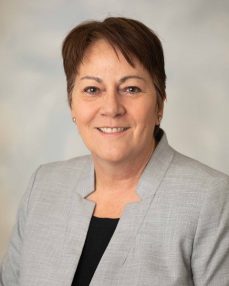
FIRST DIVE TO GLACIER’S EDGE
The underwater face of Greenland’s glaciers was an unexplored climate frontier. Until now.
EARTHQUAKE OR SOMETHING ELSE?
Researchers are applying a well-known algorithm in an innovative way to investigate whether turbidites are a reliable record for earthquakes in Cascadia
EXTREME CLIMATE SIMULATION
The University of Texas Institute for Geophysics and insurance services company Verisk have teamed up on the largest-ever climate model simulation for extreme weather
Spanning the Energy Landscape
There is no better place for tackling the energy challenges of the future than the Jackson School of Geosciences. Learn more about about the research projects and programs happening here.
News
Scientific Instrument Developed by UTIG Scientists Headed to Europa
Among the instruments the spacecraft is carrying is a moon-imaging radar sounder named REASON that...
World-Class Mexican Minerals Join Jackson School Collection
Sparkling in inky blues and vibrant greens, you don’t need to be a geologist to...
Research Finds that Rain is Drawn to Many Big Cities
It’s well-known that urban areas are often hotter than the surrounding countryside, but new research...
Modern Treasure Hidden in Coal Waste
Coal ash — the chalky remnants of coal that has been burned for fuel —...
Ancient Avian Skull Could Be World’s Oldest-Known Modern Bird
A Nature study on an ancient avian skull is strengthening the case for Vegavis iaai...
Growing Water Needs for Texas Hydrogen Industry
There are many ways to make hydrogen, a carbon-free energy source and petrochemical ingredient. But...
Awards & Honors
Department of Earth and Planetary Sciences Professor Bayani Cardenas is on a world tour this...
Class Spotlight: GEO 416S
GEO 416S is designed to introduce second-year students to key geological concepts and field skills...
Dean's Welcome
Conducting research that unravels the complex processes behind natural hazards is often difficult. But the need for greater knowledge is urgent for those who may be in harm’s way. This is an important driver for high-risk, high-reward science.
The cover story in The Geoscientist follows a mission to Greenland, led by Professor Ginny Catania, to take measurements and images never-before collected at the underwater interface of a glacier, its sediment base and seawater. What happens here is one of the major blind spots in models used to predict future sea level changes that will impact coastal communities around the world. Catania assembled a team of 23 scientists, students and engineers from seven institutions. Their efforts exemplify the incredible research that is made possible by scientific collaboration!
Other examples of high-impact research at the Jackson School of Geosciences includes the development of a radar instrument now riding aboard NASA’s Europa Clipper to peer below the surface of Jupiter’s icy moon Europa. Another group is collaborating with the reinsurance company Verisk to improve its model for quantifying natural hazards risk. And another is using algorithms to analyze a record of big earthquakes in Cascadia.
One of our greatest challenges is to meet the global demand for reliable and affordable energy. Every method of energy production brings benefits and incurs costs to society and the Earth. At The University of Texas at Austin and the Jackson School, we seek to be objective and pragmatic, taking an “and, not or” approach to energy systems. We highlight how Jackson School research covers the energy landscape, from subsurface energy systems (oil and gas, hydrogen, carbon capture, geothermal) to managing induced seismicity, evaluating the water-energy nexus, and examining the full life cycle costs of electricity generation. I hope you enjoy The Geoscientist. Research inspires us all!

Claudia Mora, Dean
Jackson School of Geosciences
The University of Texas at Austin

